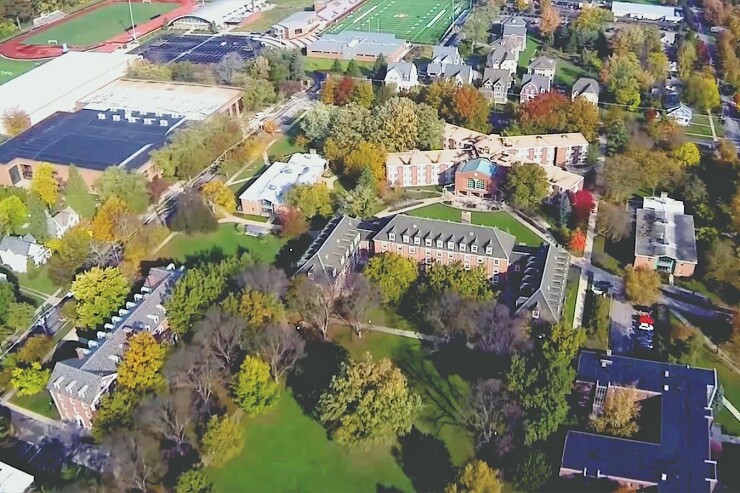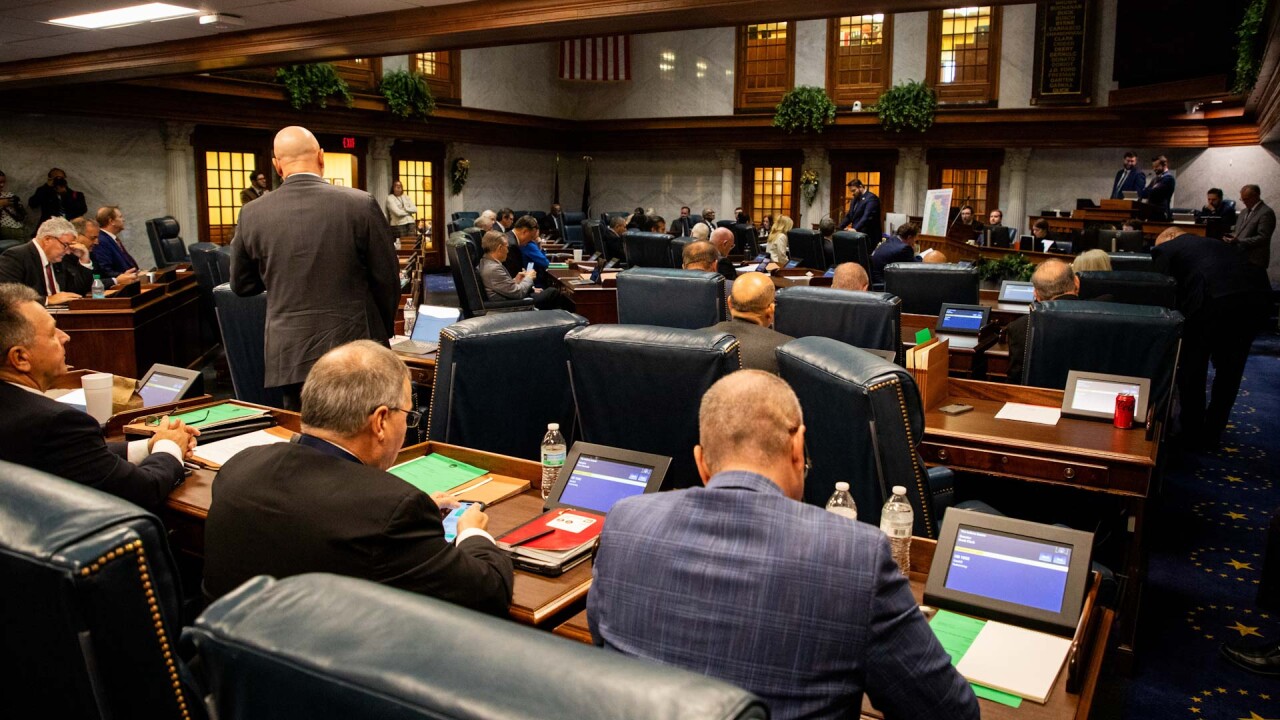Ohio-based Oberlin College is pricing $82 million of taxable bonds to replace direct placement bonds sold in 2009 and 2014 as it looks to right its financial ship with lackluster enrollment continuing to pressure its finances.
Oberlin, which has been battling tuition revenue declines as a result of a drop in students attending the college, said the bonds will be structured as fixed-rate bonds that will eliminate exposure to bank risk, covenant risk, put remarketing risk and tax risk.

Morgan Stanley is the senior manager. Frantz Ward LLP is bond counsel and PFM Financial Advisors LLC is advising the college.
The college is heading into the market as it remains the center of a libel lawsuit that could cost it more than $25 million in punitive damages.
Oberlin listed the lawsuit in the "investment considerations" section of its offering statement, but also stresses that it is confident in the adequacy of its resources and risk mitigation strategies to satisfy any liability that could ultimately result from the litigation and judgment.
“While the impact of this litigation and judgment on college operations and finances cannot be predicated with certainty the college is confident that the ultimate resolution of this litigation and judgment will not result in any material adverse effect on the college's financial condition or on its ability to meet its financial obligations including the repayment of debt service on the bonds,” the offering document stated.
Moody’s Investors Service rates the bonds Aa3, with a negative outlook. S&P Global Ratings rated the bonds AA with a negative outlook. Oberlin has roughly $187 million of bonds outstanding. The college has issued its tax-exempt debt through the conduit Ohio Higher Educational Facility Commission but does not require a conduit to sell taxable debt.
Moody’s said the rating reflects the college's strong financial profile and nationally recognized brand.
“However, competitive challenges will continue to suppress pricing flexibility and net tuition revenue growth,” the rating agency wrote.
“The negative outlook continues to reflect our view of some weakening in the college's enrollment and demand metrics, as well as its operating performance,” S&P said. “While balance-sheet metrics remain reasonable, it is our view that failure to realize operational improvements to sustain long-term break-even or better performance and stabilize enrollment could warrant a lower rating.”
Moody’s said that the 2019 bonds will reduce the college’s debt structure risk.
The bonds will eliminate the tender risk associated with the privately placed Series 2014A and 2014B bonds. The college will no longer be subject to the acceleration risk resulting from the ratings covenants associated with these bonds. Additionally, upcoming bullet maturities in 2019 and 2024 are now eliminated. The Series 2019 bonds will extend the final maturity of the existing bonds with an $82 million bullet payment due in fiscal 2050.
“Upon execution of this transaction, debt service will be significantly more level than previously, with annual payments ranging from $3.4 million to $11.8 million (averaging $8 million) through fiscal 2049,” Moody’s said.
Total headcount at the private liberal arts school in Oberlin declined for the fourth consecutive year in the fall of 2018, decreasing to 2,812 compared with 2,853 in fall 2017.
The libel lawsuit stems from student protests that accused Gibson’s Bakery in the city of Oberlin of racial profiling and discrimination after an underage African-American Oberlin student was held for attempting to shoplift wine and two others were involved in a scuffle outside the store in 2016. All three subsequently pleaded guilty.
A jury in June found Oberlin College institutionally supported the allegations of racism made by its students, as members of Oberlin's student senate published a resolution saying Gibson's had "a history of racial profiling and discriminatory treatment," while students also used a campus printer to distribute a flyer that accused Gibson's of being a "racist establishment." The bakery argued that the school suspended classes to facilitate protests and a school administrator was on the scene.
The bakery was originally awarded $44 million in damages, but that was reduced to $25 million weeks later because of a state cap on punitive damages. The college has not decided whether it will appeal the verdict.
Oberlin said it intends to take steps as necessary in an effort to avoid the case being a distraction or a detriment to its educational mission.





